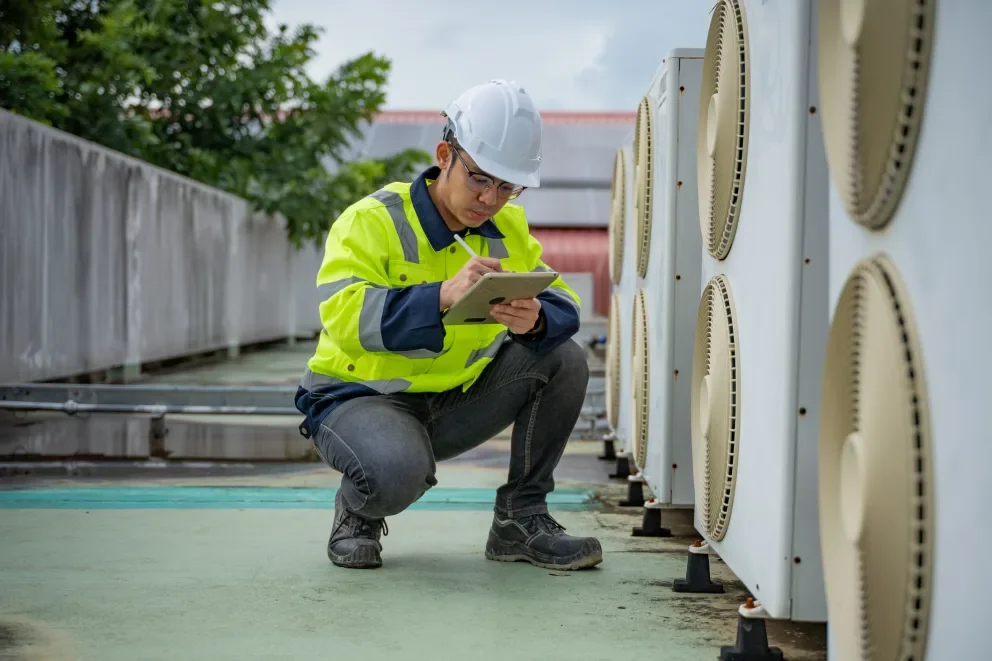Plumbing Programs are courses of study designed to provide students with the knowledge and skills needed to become successful plumbing technicians. They cover topics such as installation, repair, maintenance, safety procedures, and materials. Upon completion of these programs, graduates will have the skills required to work in any residential or commercial plumbing setting.
These programs typically include classroom instruction as well as hands-on training in a lab setting. Students will learn the basics of working with pipes and fittings, pipe sizing, soldering and brazing, blueprints reading and interpretation, water distribution systems, emergency repairs, and maintenance services. They also gain an understanding of local codes and regulations related to plumbing installations as well as knowledge of how to use common tools like wrenches and saws. Upon successful completion of a Plumbing Program, graduates will be well-prepared to work as plumbing technicians in both residential and commercial settings. They may also choose to become certified journeyman plumbers or specialize in a certain type of plumbing, such as gas fitting or solar water heating systems. With the right training and experience, these professionals can enjoy long-term success in their field.
Plumbing Programs are available at post-secondary institutions and technical schools throughout North America. Most programs require a high school diploma or equivalent, although some may accept those with relevant work experience. Some schools offer apprenticeships where students can gain practical experience while completing the program. Apprenticeship programs also provide the opportunity to earn an hourly wage while learning in a real-world environment.
What are the key features of Plumbing Programs?
At the core of every Plumbing Program are its key features, which provide students with an in-depth education and build a strong foundation for success. Students learn the fundamentals of working with pipes, fittings, pipe sizing, soldering and brazing, blueprints reading and interpretation, water distribution systems, emergency repairs, and maintenance services. These courses also cover local codes and regulations for plumbing installations as well as how to use common tools like wrenches and saws. The programs may also include hands-on training in a lab setting so that students gain practical knowledge in addition to their classroom instruction. Additionally, apprenticeship programs are available at some schools where students can earn an hourly wage while learning in real-world settings. With these key features, Plumbing Programs equip graduates with the skills needed to work in any residential or commercial setting and the potential for a successful future in the field.
What are the benefits of using Plumbing Programs?
Plumbing Programs provide students with a comprehensive education and the necessary skills to work in any residential or commercial setting. Upon completion, graduates are not only well-prepared for their chosen profession but can also pursue certifications such as journeyman plumber or specialize in gas fitting or solar water heating systems. These programs can also help save time and money since most require a high school diploma or equivalent and some offer apprenticeships where students can gain practical experience while completing the program. Additionally, these courses cover all of the relevant topics and equip graduates with an understanding of local codes and regulations related to plumbing installations as well as how to use common tools like wrenches and saws which may otherwise take years of trial and error to master. Finally, Plumbing Programs can open the door to success in this field with a rewarding and stable career.
What types of businesses can benefit from Plumbing Programs?
Plumbing Programs are beneficial for businesses of all sizes, from small plumbing companies to large corporations. For example, larger companies may use Plumbing Programs for their in-house training programs. They can equip their technicians with the knowledge and skills necessary to install complex systems like water distribution networks or solar hot water systems as well as understand local codes and regulations related to plumbing installations. Smaller businesses may benefit by using Plumbing Programs to train up-and-coming plumbers or apprentices, who can gain invaluable experience while completing their program. This can also give them a competitive edge over other contractors and help them attract top talent. In either case, businesses that use Plumbing Programs are sure to find success within this field.
What are the challenges associated with Plumbing Programs?
One of the main challenges associated with Plumbing Programs is the amount of time and effort required to complete them. With comprehensive courses covering a variety of topics, students need to be dedicated and committed in order to gain the most from their education. Additionally, there may be significant costs involved as well as access to certain tools or materials that can make it difficult for some to cover all expenses. Finally, apprenticeship programs require additional efforts on behalf of both parties and must be carefully managed by employers who are willing to take on such an arrangement. While these challenges exist, most are outweighed by the rewards that come with the successful completion of a Plumbing Program.
What should organizations consider when implementing Plumbing Programs?
When implementing Plumbing Programs, organizations should first consider the type of business they are in and what their specific needs are. For example, larger companies may need to invest in more comprehensive programs that cover a wider range of topics while smaller businesses may only require basic courses. Additionally, it is important to factor in the time commitment required as well as the costs associated with the program. Apprenticeship programs also require careful planning and management on behalf of both parties in order to be successful. Finally, organizations should make sure that they have the necessary resources in place to support the program, such as access to tools and materials. By taking all of these factors into consideration, organizations can set themselves up for success when implementing Plumbing Programs.
What are the different types of Plumbing Programs?
There are a variety of different types of Plumbing Programs available, from basic courses to more comprehensive programs. For example, some programs may only cover the basics of plumbing while others may include topics like water distribution and solar hot water systems. Additionally, there are apprenticeship programs that provide students with the opportunity to gain hands-on experience while completing their education. Finally, there are also online programs that allow students to complete their studies at their own pace. No matter what type of program is right for your needs, there is sure to be a Plumbing Program that can help you succeed in this field.
No matter what type of business you have or what your specific needs are, there is a Plumbing Program that can help you reach your goals. From basic courses to comprehensive apprenticeship programs, these programs can give you the knowledge and skills necessary to work in the plumbing field. With careful planning and management on behalf of organizations, as well as dedication from students, Plumbing Programs can provide an invaluable experience that will help ensure success in this industry.
What are the different licensing options for Plumbing Programs?
Most plumbers need to obtain a license in order to practice professionally. Depending on the state, different levels of licensing may exist for plumbers, ranging from apprentice licenses all the way up to master plumber licenses. It is important for those interested in becoming licensed professional plumbers to understand their state’s specific requirements and make sure that they meet the necessary qualifications before applying for any type of license. Additionally, many Plumbing Programs offer students additional training or certification options that can help them qualify for higher-level licensing if desired. By understanding your licensing options prior to enrolling in a Plumbing Program, you can ensure that you get the most out of your education and put yourself in a position to succeed when it comes time to apply for professional licensure.
Are there any restrictions or compliance requirements when using Plumbing Programs?
Yes, there are a number of restrictions and compliance requirements when using Plumbing Programs. In order to ensure that all students receive the same quality of education, most programs require adherence to certain standards such as the Uniform Plumbing Code (UPC). Additionally, many states have established minimum standards for plumbing work that must be met in order to receive licensure. Finally, it is important for organizations offering these programs to adhere to applicable laws and regulations related to safety and training. By understanding these restrictions and compliance requirements before enrolling in a program, you can ensure that your experience will meet both safety and educational standards.
Are there any alternatives to Plumbing Programs?
Yes, there are a number of alternatives to Plumbing Programs that may be suitable for those interested in the field. For example, some people may opt to pursue on-the-job training through apprenticeship programs or self-teaching methods. Additionally, certain certifications can be obtained without enrolling in an official program. However, these options often require more time and effort than traditional programs, making them less appealing to many individuals. By understanding all of the available options prior to deciding which route is best for you, you can ensure that you choose the option that will help you reach your goals most efficiently.
What are the best practices for using Plumbing Programs?
The best practices for using Plumbing Programs include setting realistic goals, having a well-defined plan of action, and taking the time to research your options. Additionally, it is important to stay organized throughout the process and make sure that you are fully prepared to take on any challenges or tasks related to the program. Finally, it is important to maintain communication with instructors and peers in order to maximize the effectiveness of the program. By following these best practices, you can ensure that your experience will be as successful as possible.
What resources are available to help organizations implement Plumbing Programs?
There are a number of resources available to help organizations implement Plumbing Programs. Most states offer guidance documents, regulatory information, and certification requirements for those interested in setting up these types of programs. Additionally, many organizations have developed online training tools or provided comprehensive manuals on how to establish an effective program. Finally, there are also a number of industry experts who can provide valuable insight into the best practices for running a successful Plumbing Program. By utilizing these resources prior to launching your program, you can ensure that it will be well-equipped with everything necessary to maximize success.
What is the future or trends for Plumbing Programs?
The future of Plumbing Programs looks bright, as many states are beginning to recognize the importance of this type of education and training. As a result, more resources are being made available to those interested in pursuing these programs. Additionally, technological advancements have allowed for more comprehensive and complex courses to be introduced into curriculums. Finally, there has also been an increase in certifications and licensing standards, which can help ensure that professionals are fully qualified when they enter the workforce. With all of these trends pointing towards greater access to quality plumbing education and training, it appears that Plumbing Programs will only continue to become more popular in the years ahead.
What are people saying about using Plumbing Programs?
People who have pursued Plumbing Programs generally speak highly of the experience, citing the level of knowledge and education they gained as well as increased career prospects. Additionally, many people report a greater sense of confidence in their ability to perform plumbing work after completing these programs. Finally, those who have been able to use their new skills to start their own business often cite the program as one of the primary reasons for their success. All in all, it appears that most individuals view Plumbing Programs in a positive light, making them a great option for anyone looking to further their career path in this field.



